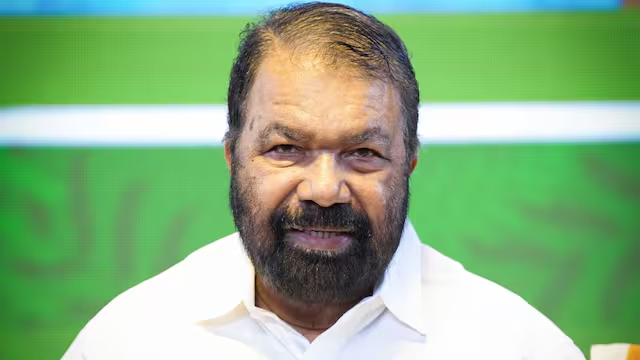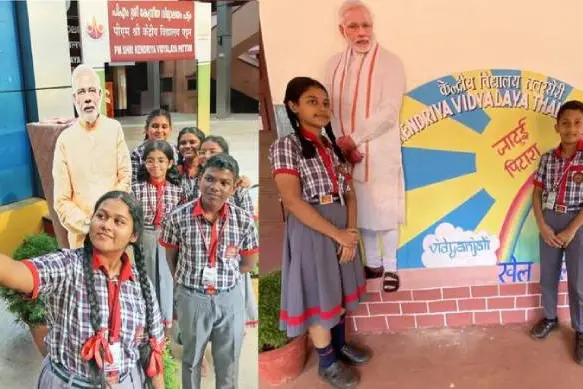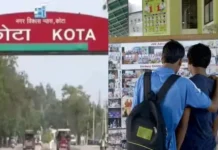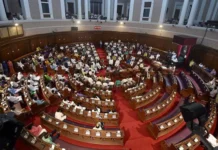
In a bold move that has drawn national attention, the state of Kerala has officially opted out of the central government’s flagship PM SHRI school scheme and is preparing to take legal action against the Union Government. The action stems from the Centre allegedly withholding ₹1,500 crore of education-related funds. This decision by Kerala signals not just a financial and administrative standoff but also a deeper constitutional and ideological clash over state autonomy and educational policy control.
Understanding PM SHRI Scheme and Kerala’s Opposition
The PM SHRI (Prime Minister Schools for Rising India) scheme is a centrally sponsored initiative launched by the Union Ministry of Education. Its aim is to upgrade nearly 14,500 schools across the country into model institutions, reflecting the goals and principles of the National Education Policy (NEP) 2020. These schools are expected to be centres of excellence in terms of infrastructure, pedagogy, and governance. While the central government has promised to cover 60% of the total project cost, the remaining 40% must be borne by the states.
However, Kerala has refused to sign the Memorandum of Understanding (MoU) required to participate in the PM SHRI scheme. According to Kerala’s Education Minister V. Sivankutty, the decision not to sign was based on the belief that no central government has the right to compel a state to adopt a policy that it has not endorsed in its election manifesto. He stated that federal principles must be respected, and the state’s autonomy in education should not be undermined by central schemes that come with mandatory ideological alignments.
Saffronisation Fears and Ideological Concerns
One of the strongest objections raised by the Kerala government relates to the National Education Policy 2020, which they argue promotes centralised control over education and paves the way for saffronisation of the curriculum. The state administration believes that accepting the PM SHRI scheme would amount to indirectly implementing NEP 2020, which Kerala has already chosen to reject officially. There are also concerns about potential symbolic impositions, such as mandatory display of the Prime Minister’s photograph in schools and the renaming of existing institutions.
Importantly, Kerala’s decision was supported by all major student organisations in the state except for the Akhil Bharatiya Vidyarthi Parishad (ABVP), the student wing affiliated with the Rashtriya Swayamsevak Sangh (RSS). This indicates a broad consensus within the state’s academic and political circles against the perceived ideological agenda embedded in the PM SHRI scheme.
₹1,500 Crore Education Funds Withheld by Centre
The biggest flashpoint in this controversy is the Centre’s withholding of ₹1,500 crore earmarked for centrally sponsored education schemes, especially the Samagra Shiksha Kerala (SSK) project. The Kerala government has alleged that the funds, which were meant to support a range of educational services, were stopped solely because the state did not sign the PM SHRI MoU. These funds are crucial for various ongoing educational programs, including distribution of textbooks, uniforms, employment of special educators, and maintenance of school infrastructure.
Kerala’s General Education Department has made it clear that the state has not received even a single installment of central aid for the financial year 2025–26, putting significant stress on its resources. In a temporary relief measure, the state government allocated ₹19.77 crore from its own budget to pay the salaries of educators and staff under the SSK program. However, despite this support, salaries for the last two months are still pending, and the sustainability of the program is now in question.
Legal Strategy and Federal Rights
Determined to challenge what it calls an undemocratic and coercive approach by the Centre, the Kerala government is preparing to move the Supreme Court. The legal argument is built upon a recent Supreme Court ruling in a case involving Tamil Nadu, where the court clearly stated that states are not constitutionally bound to implement the National Education Policy 2020. Kerala believes that this ruling sets a strong precedent in its favor and plans to seek a judicial directive to release the withheld funds immediately.
The state also plans to coordinate with Tamil Nadu, which has been equally critical of the NEP. The two states, both governed by non-BJP regional parties, are planning to present a united front in court and during public protests. Kerala’s Education Minister stated that public awareness campaigns and protest demonstrations will accompany the legal case to highlight the Centre’s discriminatory actions.
Effect on Marginalised Students and Schools
The human cost of this conflict is already visible. Over one lakh students from marginalised communities, including differently-abled and economically weaker sections, are directly affected by the disruption of services under Samagra Shiksha Kerala. These students rely on free transportation, therapy sessions, textbooks, and specialized learning aids provided through central assistance. Many of these services have either been halted or reduced, affecting their right to equitable and quality education.
School infrastructure development has also come to a halt. As per state officials, not a single school building has been upgraded or constructed under centrally sponsored schemes in the last 18 months due to the freeze in funding. Educational administrators fear that if the situation continues, the overall quality and inclusiveness of Kerala’s public school system—often regarded as one of the best in India—will start to deteriorate.
Political and Constitutional Implications
The Kerala government has framed this issue as a matter of constitutional rights and federal dignity. In their view, the Centre is using financial tools to force states into compliance with national policies, even when those policies contradict state laws or electoral promises. Such pressure tactics, they argue, violate the spirit of cooperative federalism that the Indian Constitution upholds.
At the political level, this dispute is expected to influence the national discourse on education policy and centre-state relations. It may embolden other non-BJP ruled states to reconsider their alignment with PM SHRI and NEP 2020. If the Supreme Court sides with Kerala, it could set a landmark precedent that limits the Centre’s power to tie funding with ideological or policy compliance.
Looking Ahead: What Might Happen Next
Several outcomes are possible from this standoff. First, if the Supreme Court admits the case and rules in favor of Kerala, it could compel the Centre to release the funds, reaffirming state sovereignty in education matters. Second, the public pressure and media coverage generated by Kerala and its allies might force a political compromise, where the Centre amends or rebrands PM SHRI to make it more inclusive and flexible.
Alternatively, the Centre may continue to stand firm, resulting in a long legal battle that could stretch over several months. In such a case, Kerala may be forced to divert state funds to maintain educational services, further straining its budget. The broader concern is that this may trigger a chain reaction, where more states challenge centralized policymaking in other sectors like health, agriculture, and urban development.
Kerala’s decision to opt out of the PM SHRI scheme and pursue legal action against the Union Government marks a critical moment in India’s evolving federal structure. This is not just a battle over ₹1,500 crore in education funds, but a fight over constitutional authority, state autonomy, and the right of elected governments to chart their own development course. The outcome will not only determine the future of Kerala’s school system but could also redefine how federal democracy functions in India.
As India looks ahead to implementing the ambitious goals of NEP 2020, it must ensure that these goals are achieved through consensus, not coercion. Kerala’s stand reminds us that while national vision is important, it must be rooted in respect for diversity, state rights, and constitutional balance.


































